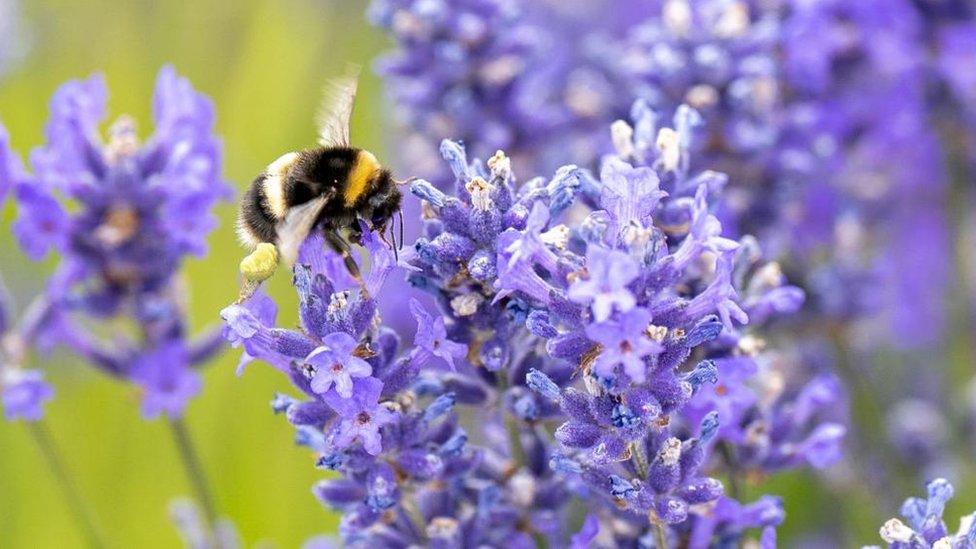Bumblebees surprise scientists with 'sophisticated' social learning
- Published

Bees can teach others to master complex tasks, and display a level of social learning traditionally thought exclusive to humans, scientists have found.
A Queen Mary University experiment saw bumblebees learn to solve problems and pass their knowledge onto others.
It is the first time scientists have seen this behaviour in insects.
Researchers say this reveals evidence of a kind of bee "culture".
The experiment saw a sugar water reward placed in a box. Bees needed to solve a two-step puzzle to get to it.
"This is an extremely difficult task for bees," said Dr Alice Bridges, who worked on the research.
First, bees had to push a blue lever that was blocking a red lever. Then they could push the red lever to get to the sugar water.
A puzzle like this is too complex for a bee to solve on its own. So scientists trained some bees by offering separate rewards for the first and second steps.
These trained bees were then paired with bees who had never seen the puzzle, and the reward for the first step was removed.
Some of the untrained bees were able to learn both steps of the puzzle by watching the trained bees, without ever receiving a reward for the first step.

Bees had to push the blue lever, then the red lever, to unlock the reward
The behaviour the bees taught each other was more complicated than something they could have come up with themselves.
Researchers say this could be evidence of a kind of "cumulative culture" in the animal kingdom - the idea of gradually accumulating knowledge and skills over generations.
"Imagine that you dropped some children on a deserted island," said Professor Lars Chittka, who also worked on the research.
"They might, with a bit of luck, survive. But they would never know how to read or to write. Because this requires learning from previous generations.
"This kind of cumulative acquisition of knowledge was thought to be unique to the human species.
"This challenges the traditional view that only humans can socially learn complex behaviour," he said.
The study was published in the Nature journal. Another recent study, published in the journal Nature Human Behaviour, saw chimpanzees learn to solve a three-step puzzle through social learning.
- Published1 March 2024
